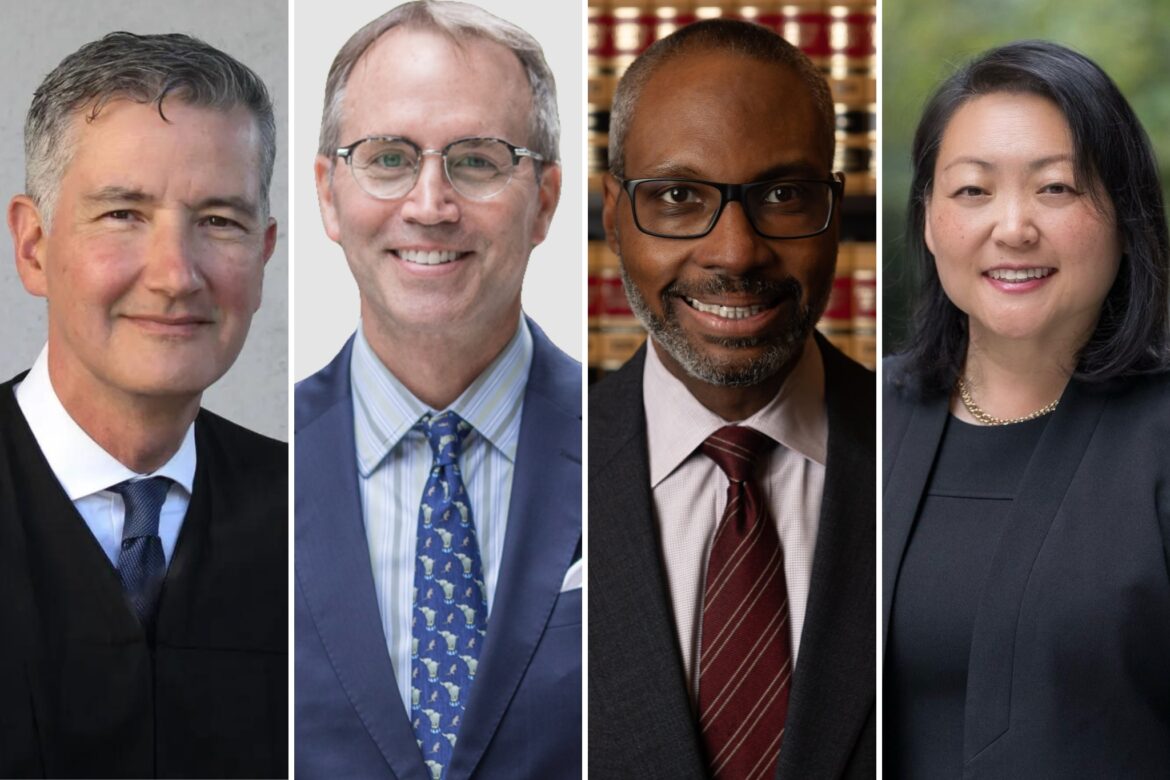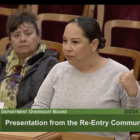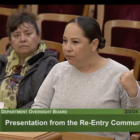This article is adapted from an episode of our podcast “Civic.” Click the audio player below to hear the full story.
In California, the governor appoints superior court judges to fill seats across 58 counties. Terms are typically six years, and judges keep their positions unless they’re recalled, which happens rarely, or someone decides to run against them in a local election. Usually, judges don’t face challengers.
But a pair of San Francisco Superior Court judges are running to stay on the bench in the upcoming March 5 election. The last time sitting judges faced such challenges here was in the June 2018 primary election, and the challengers lost.
Voters might be wondering why they’re being asked to make this decision.
“What’s confusing is that we tend to think of the legal system and justices as being kind of impartial referees,” said Keally McBride, professor of politics at the University of San Francisco. “That, and politics shouldn’t be involved in the selection of judges, and politics shouldn’t be guiding why judges make particular decisions. And so, in some ways, having any kind of judicial election goes against our notion of the judiciary as the third branch of government, which stands outside of the normal competitive democratic system.”
San Francisco voters are being asked to decide between incumbent judge Michael Isaku Begert and his challenger Chip Zecher, and between incumbent judge Patrick S. Thompson and his challenger Jean Myungjin Roland. (Read more about these four candidates and listen to the audio statements they submitted in response to Public Press questions in our voter guide.)
The incumbents have received campaign support from lawyers and other judges. The challengers call for holding more defendants in custody as they await trial and for tougher sentencing. They have received money from funders supporting campaigns for several ballot propositions and backing a slate of candidates seeking seats on the Democratic County Central Committee, the official leadership of the local Democratic Party.
McBride said that because of sentencing guidelines, judges have less discretion than they may appear to have: “I would argue that the D.A.’s office probably has more to do with who gets charged, and who does not get charged than your average superior court judge.”
“They are pointing to specific decisions that these judges have made, like, oh, this person who had this much fentanyl was let go, and therefore this proves that they are really not at all tough on crime,” she said. “But when you look at the overall judicial record, my understanding is that there’s nothing significantly different about these two judges.”
Listen to this “Civic” episode to learn more about voting for judges, how these contests reflect political trends on local and national levels, and how California sentencing reform initiatives are coming up against calls for increased policing and criminal prosecution. The episode is followed by audio statements submitted by each candidate in response to questions from the Public Press.










